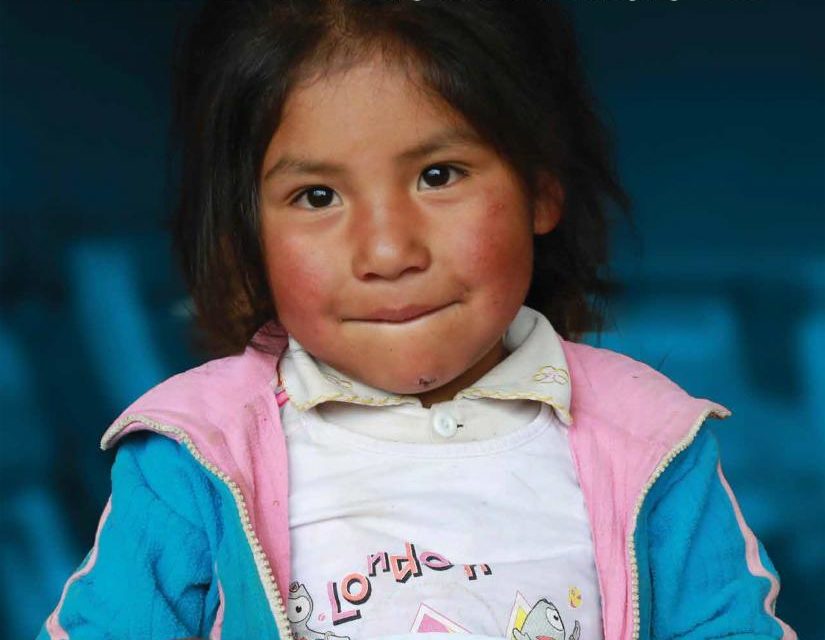UNICEF report “The State of the World’s Children 2019” 17/10/2019 – Posted in: Daily News
UNICEF report on Malnutrition
For: Preliminary & Mains
Topics covered:
- What is in the report and what are the major highlights
- What is malnutrition?
- About UNICEF
News Flash
According to a UNICEF report “The State of the World’s Children 2019”, malnutrition caused 69 percent of deaths of children below the age of five in India.
Malnutrition
It is a condition that results from eating a diet in which nutrients are either not enough or are too much such that the diet causes health problems. According to the World Health Organization, malnutrition refers to deficiencies, excesses or imbalances in a person’s intake of energy and/or nutrients.
Highlights of the report
- Every second child in India below the age of 5 years is affected by some form of malnutrition. This includes stunting (35 percent), wasting (17 percent) and overweight (2 percent).
- 42 percent of children (age group of 6 to 23 months) are fed at the adequate frequency and 21 percent get an adequately diverse diet.
- Timely complementary feeding is initiated for only 53 percent of infants aged 6-8 months.
- Every second woman in India is anaemic.
- Indian children are being diagnosed with adult diseases such as chronic kidney disease, hypertension, and pre-diabetic.
- Childrens under the age of 5 years are affected by micro-nutrient deficiencies.
- Every fifth child under the age of five is vitamin A deficient.
- One in every third baby has vitamin B12 deficiency and two out of every five children are anemic.
- Overweight and obesity increasingly begin in childhood.
- The rise in the threat of non-communicable diseases like diabetes in school-aged children and adolescents is seen.
Reasons for growing malnutrition in India
- Unhealthy food snacking environment
- Food consumption patterns
- Diets are largely starved of proteins and micronutrients
- Protein-based calories remain low in every diet
- Less or minimal consumption of fruits and vegetables
- In many cities, poor children live in “food deserts” or in “food swamps”.
Missions/ Abhiyaans
- National Nutrition Mission or POSHAN Abhiyaan, helps in improving nutrition indicators across India.
- The Anaemia Mukt Bharat programme has been recognized as one of the best programmes across the world to address malnutrition.
- The 6X6X6 strategy (six target beneficiary groups, six interventions and six institutional mechanisms) has been highlighted for using anaemia testing & treatment.
Way forward
The government should come up with new and strong policies to stop malnutrition as UNICEF in its report said that almost two in three children between 6 months and 2 years of age are not fed food that supports their rapidly growing bodies and brains. This puts them at risk of poor brain development, weak learning, low immunity, increased infections and, in many cases, death.
UNICEF (United Nations Children’s Fund)
UNICEF, originally known as the United Nations International Children’s Emergency Fund, was created by United Nations General Assembly in December 1946, to provide emergency food and healthcare to children and mothers in countries that had been devastated by World War II.
UNICEF works in over 190 countries and territories to save children’s lives, to defend their rights, and to help them fulfill their potential, from early childhood through adolescence.
Steps taken by UNICEF
- Every 53 seconds a newborn dies in India due to lack of awareness of healthcare facilities and preventable causes such as Diarrahoea and Pneumonia.
- UNICEF India is working with the Government to make sure that more babies are admitted to Special Newborn Care Units (SNCUs) in Government hospitals across the country.
- These units are set up to treat sick newborns, many of whom would not survive without the specialized care and treatment.
- UNICEF is training ASHA workers at the block level who are crucial in identifying, monitoring and counselling mothers and families, particularly in areas with a high-risk pregnancy.
- UNICEF also provides the much-required training to healthcare professionals in SNCUs across India to care for, follow up and monitor babies and their families to help ensure every child is safe and healthy.
Source: News 18
READ MORE DAILY NEWS
You are on the Best Online IAS preparation platform. You are learning under experts.
We are present on Facebook- Diligent IAS, LinkedIn- Diligent IAS, YouTube- Diligent IAS, Instagram- Diligent IAS. Get in touch with us.

